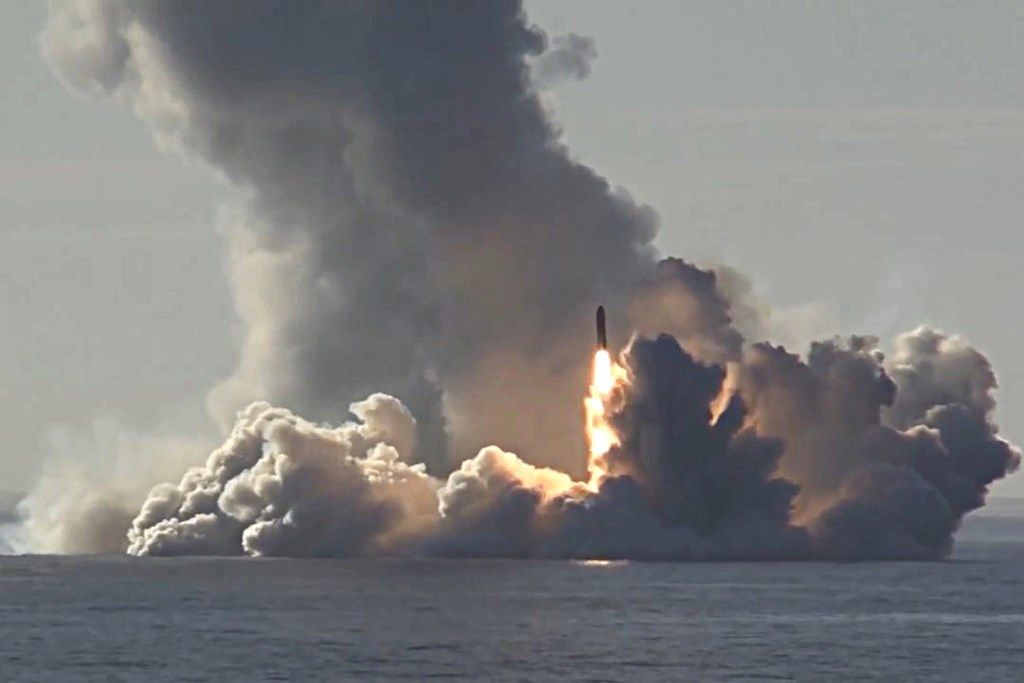The State of Play and Challenges for the Nuclear Non-Proliferation Treaty

The meeting was primarily tasked with reaching agreements on procedural matters for the Review Conference. It also provided a forum to discuss substantive issues. In the end, it succeeded in the first task, but the participants were unable to agree on recommendations regarding the substance of the Treaty on the Non-Proliferation of Nuclear Weapons (NPT). Tensions between some state parties and broader disagreements do not bode well for the future of the regime. For Poland, harmonising its support for nuclear disarmament with maintaining the credibility of NATO’s nuclear deterrence remains challenging.
Importance of the NPT
The treaty which entered into force in 1970, remains the cornerstone of the global nuclear non-proliferation system. There are currently 191 state parties to the NPT, with India, Pakistan, Israel, and North Korea remaining outside. The treaty includes commitments in three areas: nonproliferation, peaceful uses of nuclear energy, and disarmament. It identifies five nuclear-weapons states (the U.S., Russia, UK, France, China, together the “P5”), which are obliged not only to refrain from transferring nuclear weapons and technologies to other states but also to work towards the cessation of the nuclear arms race and towards nuclear disarmament (Art. VI). While the NPT has not fully stopped nuclear proliferation, its existence has contributed significantly to keeping the “nuclear weapons club” small.
The Current Review Cycle
The NPT review process, culminating every five years in a Review Conference, serves to fine-tune the implementation of the treaty to the latest developments. The last conference ended in 2015 without adopting a consensus final document. This was directly caused by the failure to agree the language on the establishment of a Middle East zone free of weapons of mass destruction, promoted by the Arab states. But the meeting revealed more fundamental disagreements regarding the pace of nuclear disarmament and the responsibilities of nuclear weapons states (NWS).
In the current review cycle, some states, supported by the chairs of the Preparatory Committee meetings and the designated conference president, Argentinian diplomat Rafael Grossi, aimed to emphasize the areas in which the commonality of views among the state parties is highest. This includes the overall importance of the NPT, the peaceful use of nuclear energy, and the prevention of nuclear weapon use.
This approach had some positive impact on the tone of the debates, especially in 2019, but did not bridge any of the disagreements from 2015. For example, meaningful progress on the Middle East zone remains doubtful. The Arab states have managed to secure the organisation of a UN conference on the topic for November 2019, but it will most likely be boycotted by Israel and the U.S.
The issue of the progress of nuclear disarmament, or lack thereof, will be of greatest importance to the overall future of the NPT. In the current review cycle, the NWS have focused on arguing that their decisions on further nuclear reductions, or nuclear disarmament, depend on the existing security environment. The U.S. has unveiled the initiative “Creating the environment for nuclear disarmament” (CEND), proposing a dedicated working group to identify the broader changes in the security situation and ways of easing the tensions that could make disarmament possible. A number of non-nuclear states reject such an approach, perceiving it as a way to divert attention from the ongoing nuclear modernisation programmes and the NWS maintaining, or increasing, the role of nuclear weapons in their security doctrines.
A new element in this review cycle was the adoption in 2017 of the Treaty on the Prohibition of Nuclear Weapons (TPNW). Unlike the NPT, it does not allow continued possession of nuclear weapons by some states. Its proponents argue that it strengthens the NPT and creates additional pressure on the nuclear states. The opponents claim that it may compromise the centrality of the NPT by creating a parallel legal regime. So far, the NPT community has not managed to agree a consensus formula describing the relationship between the two instruments. If the TPNW moves significantly closer to or enters into force before the Review Conference, which requires 50 states (there are currently 23 ratifications), this will create strong leverage for that treaty’s supporters
The U.S.-Russia tensions and the continuing collapse of the bilateral strategic arms-control system create a challenge for the NPT. The INF Treaty, violated by Russia, was suspended and will cease to operate in August 2019. The New START remains in force, but so far there are no negotiations on its extension beyond 2021 or replacement. The lack of process by 2020 will expose the U.S. and Russia to even more criticism at the Review Conference. It will also allow China to continue dodging the questions about its lack of nuclear reductions and its disarmament record.
The run-up to the Review Conference can be, however, dominated by another issue: Iran’s compliance with the non-proliferation aspects of the 2015 nuclear deal (JCPOA). If Iran, as it announced, gradually ceases to observe its obligations, one can expect a contentious debate at the Review Conference about the appropriate reaction. Iran’s return to industrial-scale uranium enrichment, curtailing its cooperation with the IAEA or applying the Additional Safeguards Protocol will fuel some state parties’ suspicions that Iran is readying itself to abandon the NPT and build nuclear weapons.
Poland’s Interests and Recommendations
Poland remains active in the NPT forum. A representative of Poland chaired the second (2018) meeting of the Preparatory Committee. Beyond formulating its national position, Poland participated in the development of EU statements, cooperated with partners from the Non-Proliferation and Disarmament Initiative (NPDI, a group of 12 states preparing joint proposals for the NPT process), and contributed to the work on nuclear disarmament verification.
Poland remains critical of the TPNW and promotes a step-by-step approach to disarmament. This position is influenced by the importance it attaches to NATO’s nuclear deterrence and U.S. extended deterrence in the context of Russia’s behaviour. Poland is one of the countries that support the disarmament goals of the NPT but are also wary of premature delegitimisation of nuclear deterrence, the unilateral disarmament of democratic states-possessors, and any challenges to the internal NATO consensus around its nuclear posture.
At the same time, the further polarisation of positions within the NPT is not in Poland’s interest, as it could weaken the non-proliferation norm and decrease the probability of countering effectively any future nuclear-proliferation crisis. The NPT forum can also be used to apply political pressure on the NWS— including Russia—to at the very least not increase their arsenals or deploy additional types of nuclear weapons.
To increase the chances for a successful 2020 Review Conference, it would be important to encourage the NWS to unveil specific initiatives for the fulfilment of Article VI before or at the conference. A number of nuclear risk-reduction measures can be pursued by the P5. A New START extension can be raised with the U.S. and Russia. Poland could utilise for these purposes its consultations with the P5 countries, especially the UK (which is currently leading the P5 group) and participation in the U.S.-led CEND working group. It can also support the aims of the ministerial “stepping stones to disarmament” meeting organised by Sweden.
Without changing its critical stance on the Prohibition Treaty, Poland could nevertheless explore potential ways and formulas for the Review Conference to acknowledge the TPNW’s emergence and its importance for the signatories. This may help consolidate the NPT and increase the chances of progress in other areas under review.



